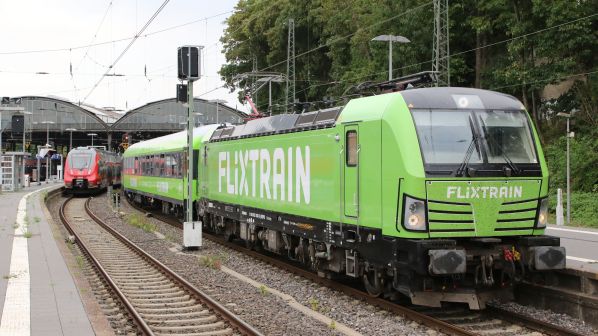In May, DB and the German federal government agreed a €5.5bn aid package to cover €5.6bn in losses caused to DB by the Covid-19 pandemic, which was later reduced to €5bn. However, this aid has not yet been registered for approval by the EC, a move required under European law.
The German government also raised DB’s debt limit from €25bn to €30bn, with DB subsequently beginning to raise additional debt. Earlier this month, this limit was increased to €32bn for 2020 and €35bn for 2021.
In the complaint, seen by IRJ, Flixmobility has argued that the funding provided to DB will distort competition and potentially force private players out of the market. The company also says the increase in the debt ceiling amounts to state aid, as private companies would not be able to increase their debt in the same way as DB.
Flixmobility alleges DB has also used the additional funding to launch the “Super Sparpreis Young” discount fares in an effort to attract passengers aged 27 and under, Flixtrain and Flixbus’ most important customer group.
While Flixtrain was forced to cancel services between March 19 and July 23, and again on November 3, DB has continued to operate a near-regular services, which Flixmobility says was only possible because it was able to rely on public support.
“We have seen DB and the German Ministry of Transport delay the notification of state aid for eight months,” says Flixmobility co-founder, Mr André Schwämmlein. “According to EU law, such state aid may not be granted de facto before it has been approved - if necessary with conditions. However, we see that DB is permanently obtaining massive fresh capital via the surreptitious route of ‘state guaranteed’ debt, and on terms that a private company would never get. This distorts competition.
“We do not oppose state aid for DB in principle but the competitive balance in the market needs to be preserved for the benefit of the entire sector. It should not put competition at a disadvantage, and it must come with conditions that also make it possible for us to operate in Germany under acceptable market conditions.
“Only with competition and the momentum it creates can we achieve the sustainability goals in Germany and Europe together. This includes a fair rail market as well as the recognition of long-distance buses as the most sustainable means of transport in this area.”
The move was supported by the Alliance of Passenger Rail New Entrants (AllRail) and Mofair, which represents private German rail operators.
“The German government must finally abandon unilateral, one-sided support for DB and instead allow for non-discriminatory Covid-19 financial aid across all types of rail companies,” says Mofair president, Mr Christian Schreyer, and AllRail secretary general, Mr Nick Brooks. “The EC is not to blame for the deadlock; the ball is firmly in the German government’s court.”

